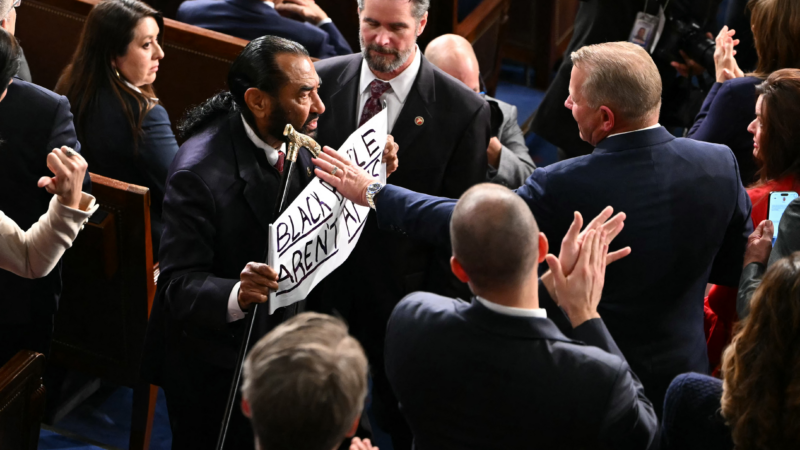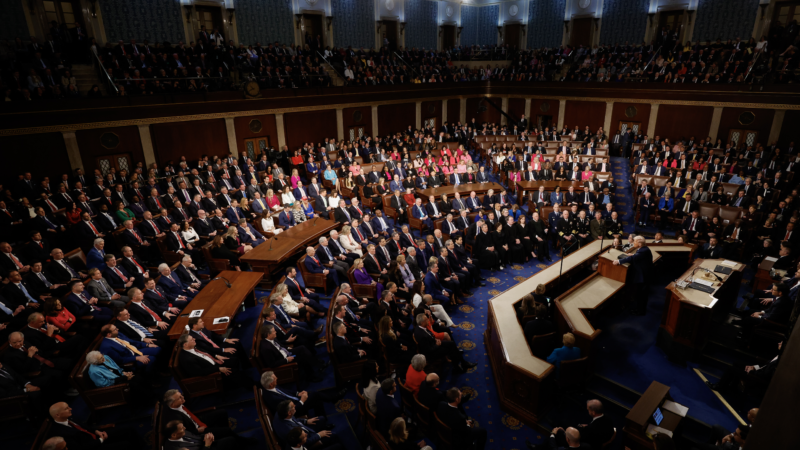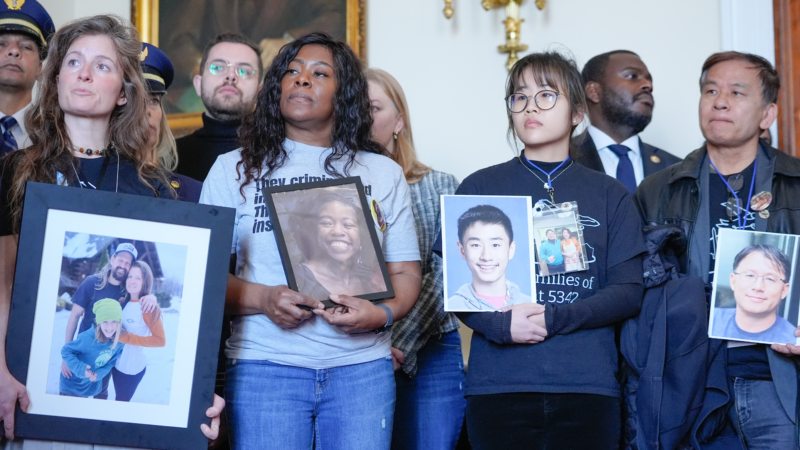Students With Disabilities Face Significant Challenges As Schools Plan To Reopen
When schools shifted to virtual instruction in March, Marcella Roberts adapted as best as she could.
“It’s been … I’ll use the word interesting,” she said.
Roberts and her husband have twin boys starting middle school later this month. One of their sons, Joshua, has Down syndrome. For the family, the pandemic has created some challenges.
“Children with Down syndrome are very sociable,” Roberts said. “And there is no distancing with them because they love to hug.”
She has been teaching Joshua alternatives, like fist bumps and hand signals, so he will be prepared with safer greetings when he is back in school. He attends Hoover city schools, which will offer in-person classes on a staggered schedule.
Roberts wants Joshua to return to school not only because he loves being around other people, but because he receives services such as speech therapy that cannot be easily replicated at home.
“I think Joshua is going to do better in an in-person environment, being there with his instructors, and having that one-on-one time,” Roberts said.
But not all schools are offering in-person classes, and for some students with special needs, returning to school is too risky due to serious underlying health conditions. For these students, advocates and health experts worry the loss of in-person services could have significant consequences.
“You’re going to see a tremendous loss of learning among students with disabilities, some of which I fear will not easily be made up,” said Nancy Anderson, associate director of the Alabama Disabilities Advocacy Program.
Schools are required by federal law to provide special education services including physical and occupational therapy and personalized learning plans.
Many educators acknowledge the challenge of providing these services remotely, including state Superintendent Eric Mackey.
“Those vulnerable children, whether they’re children with special needs or our English language learners, children who have mental health needs, those are the ones that keep me up at night,” Mackey said during a recent press conference.
Anderson said parents understand these are unprecedented times, but they also need guidance about what to expect with online platforms.
“I think it’s really important for schools to engage with families,” she said, “get to the table with them and talk with them about how their child’s needs are going to be met.”
Many families are already struggling from the loss of in-person services in recent months.
Dr. Justin Schwartz, a behavioral pediatrician at Children’s Hospital, works with many patients who have autism or ADHD. He said for some, the pandemic has delayed progress.
“The functional skills, the adaptive skills, the kids who were working on toilet training or self-feeding or those things have been much more challenging to work on in a virtual way,” Schwartz said.
He said it takes a toll on both kids and their families, some of whom are dealing with other setbacks such as unemployment or other health concerns. The pressure, Schwartz said, can have a significant impact on everyone’s mental health.
“There’s always the possibility for more behavior issues at home,” he said. “There’s always the possibility for more discord between parents and children, or that overall family stress is heightened.”
Schwartz has talked with many parents about deciding whether to send their kids back to school. He said ultimately, it’s a risk-benefit analysis, and that can look different for every family.
China restricts exports to 40 Japanese entities with ties to military
China on Tuesday restricted exports to 40 Japanese entities it says are contributing to Japan's "remilitarization," in the latest escalation of tensions with Tokyo.
Signs, silence, and skipping: How Democrats protested Trump’s State of the Union
The pushback comes as Democrats enter a midterm year where they hope to make gains in the House and Senate.
Trump honors gold medal-winning men’s hockey team at State of the Union amid controversy
The celebration of the men's team comes after FBI Director Kash Patel's trip to the Games in Milan, and the president's comments about the U.S. women's team, have drawn scrutiny.
Read NPR’s annotated fact check of President Trump’s State of the Union
As President Trump delivers his State of the Union address, reporters from across NPR's newsroom will fact check his speech and offer context.
President Trump set to deliver first State of the Union address of his second term
Facing low approval ratings and ahead of midterm elections in November, President Trump delivers the first State of the Union address of his second term as president Tuesday night.
U.S. House rejects aviation safety bill after Pentagon abruptly withdraws support
The House of Representatives narrowly rejected a bipartisan aviation safety bill that was spurred by the deadly midair collision near Washington, D.C. after the Pentagon abruptly withdrew its support.







